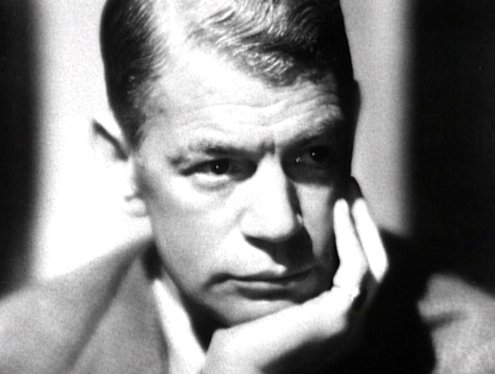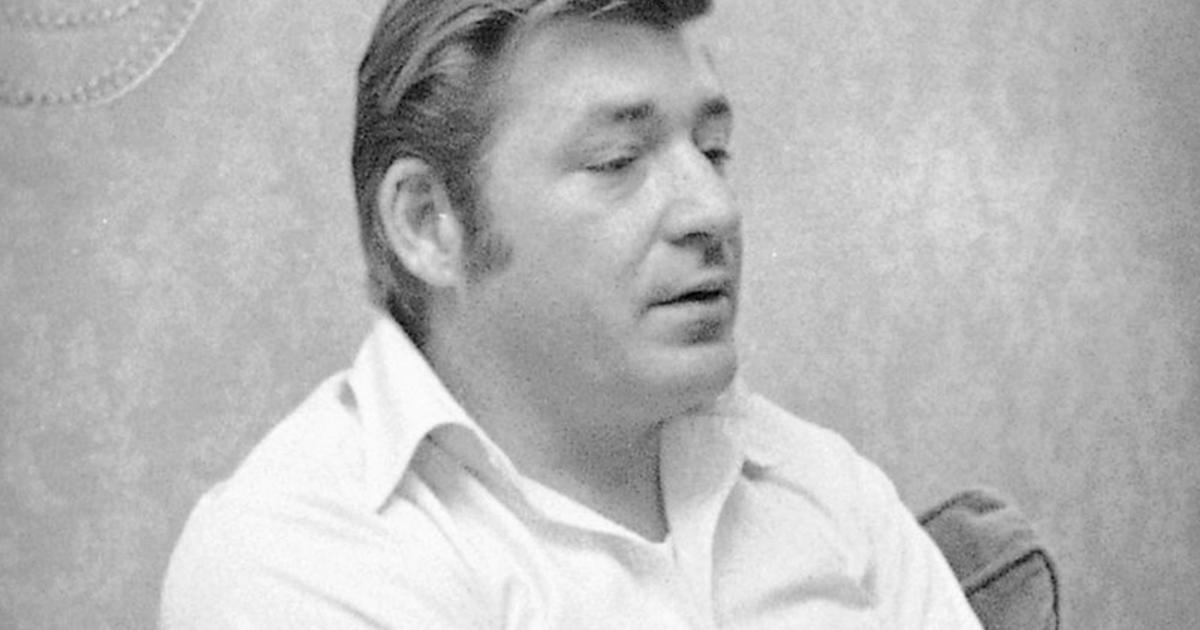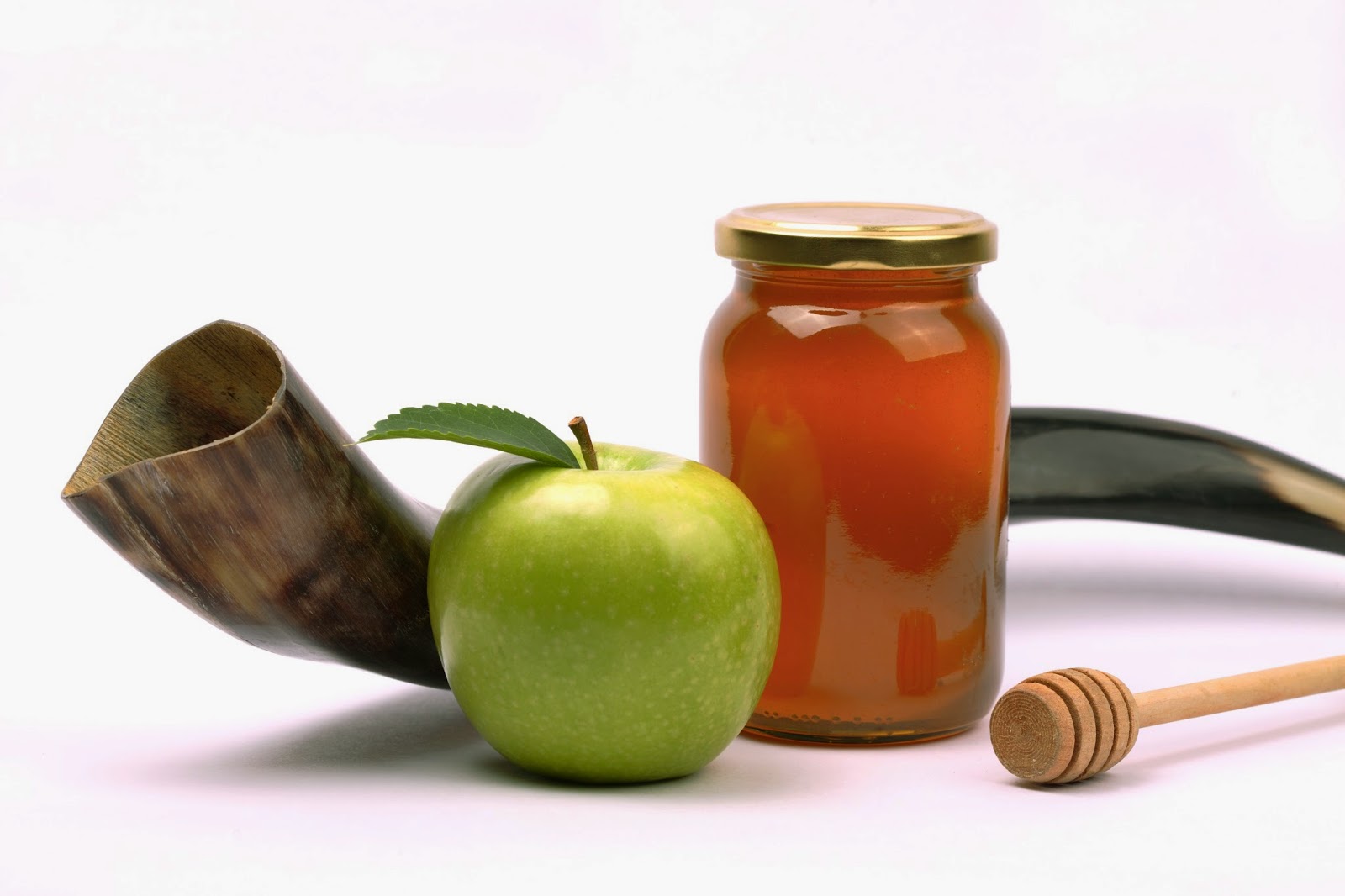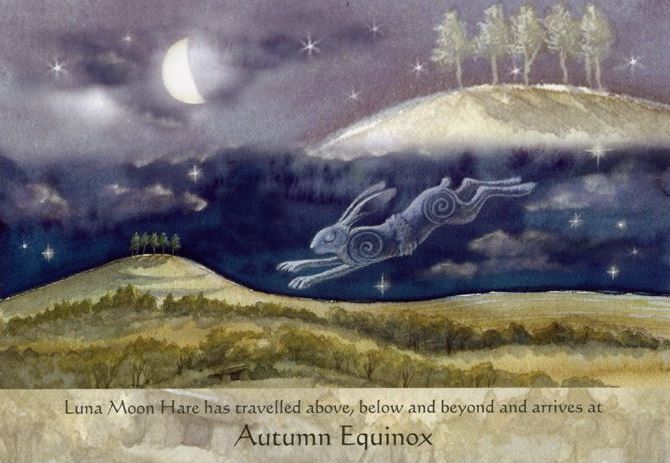|
Gay Wisdom for Daily Living brought to you by White Crane Institute ͏ ͏ ͏ ͏ ͏ ͏ ͏ ͏ ͏ ͏ ͏ ͏ ͏ ͏ ͏ ͏ ͏ ͏ ͏ ͏ ͏ ͏ ͏ ͏ ͏ ͏ ͏ ͏ ͏ ͏ ͏ ͏ ͏ ͏ ͏ ͏ ͏ ͏ ͏ ͏ ͏ ͏ ͏ ͏ ͏ ͏ ͏ ͏ ͏ ͏ ͏ ͏ ͏ ͏ ͏ ͏ ͏ ͏ ͏ ͏ ͏ ͏ ͏ ͏ ͏ ͏ ͏ ͏ ͏ ͏ ͏ ͏ ͏ ͏ ͏ ͏ ͏ ͏ ͏ ͏ ͏ ͏ ͏ ͏ ͏ ͏ ͏ ͏ ͏ ͏ ͏ ͏ ͏ ͏ ͏ ͏ ͏ ͏ ͏ ͏ ͏ ͏ ͏ ͏ ͏ ͏ ͏ ͏ ͏ ͏ ͏ ͏ ͏ ͏ ͏ ͏ ͏ ͏ ͏ ͏ ͏ ͏ ͏ ͏ ͏ ͏ ͏ ͏ ͏ ͏ ͏ ͏ ͏
|
|
||||
| This Day in Gay History | ||||
September 22Born 1889 - JAMES WHALE, British stage and film director, born (d: 1957) Most famously, the director of four classics of the macabre, Frankenstein (1931), and perhaps the best of all, the witty Bride of Frankenstein (1935). Among his many other films is the best of the three Hollywood depictions of Showboat, the 1936 black-and-white version with Irene Dunne. Whale lived openly as a Gay man in a then-as-now closeted Hollywood. His long-time lover was the producer David Lewis. But by 1940, no studio would hire him, and he never worked again. His later life was famously portrayed in the film Gods and Monsters (1998), starring gay actor Ian McKellan and the estimable Brendan Fraser. One of the most critically acclaimed films of 1998 and winner of several awards including the Oscar for Best Adapted Screenplay, Gods and Monsters is a compassionate speculation about the final days of Whale Adapted and directed by Bill Condon from Christopher Bram's novel Father of Frankenstein, the film stars McKellen in a sublime performance as the white-haired Whale, who is portrayed as a dapper gentleman and amateur artist prompted by failing health into melancholy remembrance of things past. Flashbacks of lost love, World War I battle trauma, and glory days in Hollywood combine with Whale's present-day attraction to a newly hired yard worker (Fraser) whose hunky, Frankenstein-like physique makes him an ideal model for Whale's fixated sketching. The friendship between the handsome gardener and his elderly Gay admirer is by turns tenuous, humorous, mutually beneficial, and ultimately rather sad – but to Condon's credit Whale is never seen as pathetic, lecherous, or senile. Equally rich is the rapport between Whale and his long-time housekeeper (played with wry sarcasm by Lynn Redgrave), who serves as protector, mother, and even surrogate spouse while Whale's mental state deteriorates. Flashbacks to Whale's filmmaking days are painstakingly authentic (particularly in the casting of look-alike actors playing Boris Karloff and Elsa Lanchester), and all of these ingredients combine to make Gods and Monsters (executive produced by horror novelist-filmmaker Clive Barker) a touchingly affectionate film that succeeds on many levels. It is at once a keen glimpse of Hollywood's past, a loving tribute to James Whale, and a richly moving, delicately balanced drama about loneliness, memory, and the passions that keep us alive. 1958 - TIM MILLER, playwright and performance artist was born in Pasadena, California. He was one of the NEA Four, four performance artists whose National Endowment for the Arts grants were vetoed in 1990 by NEA chair John Frohnmeyer.
Miller's interest in performance began in high school, where he took classes in theater and dance. He played the lead role of John Proctor in Lowell High School's production of The Crucible by Arthur Miller. At nineteen he moved to New York and studied dance with Merce Cunningham. In 1980 Miller joined with Charles Moulton, Peter Rose and Charles Dennis to found P.S. 122, a space for performance art. The name derives from the former school building that houses the project. In 1987 Miller returned to California and with Linda Frye Burnham founded another performance space, Highways, in Santa Monica. In 1993 Miller was featured in the episode of The Larry Sanders Show called The Performance Artist. He played himself as the titular performance artist, who appears as a guest both on Larry Sanders' show and on The Tonight Show with Jay Leno performing a portion of My Queer Body. In 1997 Miller published Shirts & Skin, a compilation of personal stories that he had told in his shows over the previous decade. He also launched a show of the same name. Miller took on a new topic, immigration rights for gay and Lesbian partners of American citizens, in Glory Box (1999). The immigration issue is a personal cause as Alistair McCartney, his partner since 1994, is Australian. In 2002 Miller published Body Blows, a collection of scripts from six of his shows with associated essays. Miller returned to the theme of the problems of Americans with same-sex life partners in the show Us in 2003. The title refers both to his relationship with McCartney and to the laws in the United States which could prevent them from being together. Noteworthy 1975 - On this date OLIVER SIPPLE saved President Gerald Ford's life. Sara Jane Moore attempted to assassinate U.S. President Gerald Ford outside the St. Francis Hotel in San Francisco, just seventeen days after Lynette "Squeaky" Fromme had also tried to kill the president. Moore was 40 feet away from Ford when she fired a single shot at him. The bullet missed the President because bystander Oliver Sipple grabbed Moore's arm and then pulled her to the ground, using his hand to keep the gun from firing a second time. Sipple said at the time: "I saw [her gun] pointed out there and I grabbed for it. I lunged and grabbed the woman's arm and the gun went off." The single shot which Moore did manage to fire from her .38-caliber revolver ricocheted off the entrance to the hotel and slightly injured a bystander. Sipple, a decorated Marine and Vietnam War veteran, was immediately commended by the police and the Secret Service for his action at the scene. The news media portrayed Sipple as a hero but would eventually report on his outing by Harvey Milk and other San-Francisco Gay activists. Though he was known to be Gay by various fellow members of the Gay community, Sipple had not made this public, and his sexual orientation was a secret from his family. He asked the press to keep his sexuality off the record, making it clear that neither his mother nor his employer had knowledge of his orientation; however, his request was not complied with. The national spotlight was on him immediately, and Milk responded. While discussing whether the truth about Sipple's sexuality should be disclosed, Milk told a friend: "It's too good an opportunity. For once we can show that Gays do heroic things, not just all that ca-ca about molesting children and hanging out in bathrooms." Milk contacted the newspaper. Several days later Herb Caen, a columnist at The San Francisco Chronicle, outed Sipple as a gay man and a friend of Milk. Sipple was besieged by reporters, as was his family. His mother, a staunch Baptist in Detroit, refused to speak to him. Although he had been involved with the gay community for years, even participating in Gay Pride events, Sipple sued the Chronicle for invasion of privacy. President Ford sent Sipple a note of thanks for saving his life. Milk said that Sipple's sexual orientation was the reason he received only a note, rather than an invitation to the White House. Sipple filed a $15 million invasion of privacy suit against Caen, seven named newspapers, and a number of unnamed publishers, for publishing the disclosures. The Superior Court in San Francisco dismissed the suit, and Sipple continued his legal battle until May 1984, when a state court of appeals held that Sipple had indeed become news, and that his sexual orientation was part of the story. According to a 2006 article in The Washington Post, Sipple went through a period of estrangement with his parents, but the family later reconciled with his sexual orientation. Sipple's brother, George, told the newspaper, "(Our parents) accepted it. That was all. They didn't like it, but they still accepted. He was welcomed. Only thing was: Don't bring a lot of your friends." Sipple's mental and physical health sharply declined over the years. He drank heavily, gained weight to 300 lb, was fitted with a pacemaker, became paranoid and suicidal. On February 2, 1989, he was found dead in his bed, at the age of forty-seven. Earlier that day, Sipple had visited a friend and said he had been turned away by the Veterans Administration hospital where he went concerning his difficulty in breathing. His $334 per month apartment near San Francisco's Tenderloin District was found with many newspaper clippings of his actions on the fateful September afternoon in 1975. His most prized possession was the framed letter from the White House. Sipple held no ill will toward Milk, and remained in contact with him. The incident brought him so much attention that, later in life, while drinking, he would regret grabbing Moore's gun. Sipple, who was wounded in the head in Vietnam, was also diagnosed paranoid schizophrenic according to the coroner's report. Sipple's funeral was attended by 30 people, and he was buried in Golden Gate National Cemetery in San Bruno, California. A letter addressed to the friends of Oliver Sipple was on display for a short period after his death at one of his favorite hangouts, the New Belle Saloon: "Mrs. Ford and I express our deepest sympathy in this time of sorrow involving your friend's passing..." President Gerald Ford, February, 1989 In a 2001 interview with columnist Deb Price, Ford disputed the claim that Sipple was treated differently because of his sexual orientation, saying, "As far as I was concerned, I had done the right thing and the matter was ended. I didn't learn until sometime later — I can't remember when — he was gay. I don't know where anyone got the crazy idea I was prejudiced and wanted to exclude gays." 2017 - Today is ROSH HASHANAH, literally "head [of] the year"), is the Jewish New Year and it begins at sunset this evening this year. It is the first of the High Holy Days or Yamim Nora'im ("Days of Awe") which usually occur in the early autumn of the Northern hemisphere. Rosh Hashanah is a two-day celebration, which begins on the first day of Tishrei. The day is believed to be the anniversary of the creation of Adam and Eve, the first man and woman, and their first actions toward the realization of mankind's role in God’s world. Rosh Hashanah customs include sounding the shofar (a hollowed-out ram's horn) and eating symbolic foods such as apples dipped in honey to evoke a "sweet new year". The traditional greeting is “shana tovah” which in Hebrew means "A Good Year." 2017 - This is the AUTUMNAL EQUINOX in the Northern Hemisphere and the Vernal Equinox in the Southern Hemisphere. An equinox in astronomy is the moment in time (not the whole day) when the center of the Sun can be observed to be directly above the Earth’s equator, occurring around March 20 and September 23 each year. Today this moment is 5:18 pm on the East Coast. The September equinox marks the first day of Mehr or Libra in the Iranian calendar. It is one of the Iranian festivals called Jashne Mihragan, or the festival of sharing or love in Zoroastrianism. The September equinox was "New Year’s Day" in the French Republican Calendar, which was in use from 1793 to 1805. The French First Republic was proclaimed and the French monarchy was abolished on September 21, 1792, making the following day the equinox day that year, the first day of the "Republican Era" in France. The start of every year was to be determined by astronomical calculation, (that is: following the real Sun and not the mean Sun as all other calendars). A folk tale claims that only on the March (Vernal) equinox day (some may add the September equinox day or may explicitly not), one can balance an egg on its point. However one can balance an egg on its point any day of the year if one has the patience. For more on egg balancing: http://urbanlegends.about.com/od/errata/a/equinox_eggs.htm Although the word "equinox" implies equal length of day and night, as is noted elsewhere, this is not true. For most locations on earth, there are two distinct identifiable days per year when the length of day and night are closest to being equal. Those days are commonly referred to as the "equiluxes" to distinguish them from the equinoxes. Equinoxes are points in time, but equiluxes are days. By convention, equiluxes are the days where sunrise and sunset are closest to being exactly 12 hours apart. This way, you can refer to a single date as being the equilux, when, in reality, it spans sunset on one day to sunset the next, or sunrise on one to sunrise the next | ||||
|
|8|O|8|O|8|O|8|O|8|O|8|O|8|O|8| Gay Wisdom for Daily Living from White Crane Institute "With the increasing commodification of gay news, views, and culture by powerful corporate interests, having a strong independent voice in our community is all the more important. White Crane is one of the last brave standouts in this bland new world... a triumph over the looming mediocrity of the mainstream Gay world." - Mark Thompson Exploring Gay Wisdom & Culture since 1989! |8|O|8|O|8|O|8|O|8|O|8|O|8|O|8| | ||||
|
|||||
|






